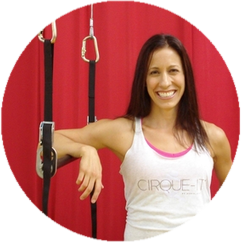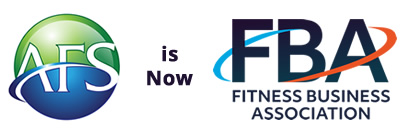 By Elizabeth Skwiot, Special AFS Contributor
By Elizabeth Skwiot, Special AFS Contributor
There’s a word we all know better than any other. We write it many times a day, spell it, see it printed on documents all over our home and studio. We often say it to others, but we seldom hear it said to us. Dale Carnegie called it “the sweetest and most important sound in any language.”
It’s our own name. We often don’t realize its importance until someone calls us by the wrong name – or---almost worse – a disliked version of our own.
The importance of saying my clients’ names didn’t really become clear to me until I visited another studio. The owner greeted me by my name (check), asked me if I went by Elizabeth or something else (check), and I said, “I go by Elizabeth, thanks for asking.”
“Great!” (check).
And all was great until, not 15 minutes later, I was referred to as “Liz.” And again, over and over, throughout the workout.
Certainly, it’s an innocent enough mistake—one I’ve made myself many times and that mortifies me when I make it. However, being on the other end of such a mistake, innocent though it may be, made me feel disconnected and wanting to get out of there – the last thing any gym or studio owner wants.
What gym owners do want is clients who are engaged, focused, and participatory – here, science supports Dale Carnegie. Carmody & Lewis (2006) found that our brains are more activated when we hear our own names as opposed to others.
What gym owners do want is clients who are engaged, focused, and participatory – here, science supports Dale Carnegie. Carmody & Lewis (2006) found that our brains are more activated when we hear our own names as opposed to others.
In particular, the activated areas include those that play a role in the formation of our own identity (“The Brain,” 2017). In other words, when we hear our name we recognize ourselves and affirm our identity, and this happens each time we hear it. In fact, our names are so powerful that even those in a vegetative state have been found to express heightened brain activity at the sound of their own name (Staffen, Kronbichler, Aichhorn, Mair, & Ladurner, 2006). Clearly, the sound of one’s own name is immensely powerful.
As a studio owner in a competitive industry, it seems like a no-brainer to use something so powerful to enrich the client environment – especially when it’s free. In my boutique studio, such self-recognition aligns well with the intimate, personalized experience we seek to provide. I decided after my research that using clients’ preferred names was important enough for me to make it studio policy. In fact, I’ve made a template for myself and trainers to use at class: list a client’s preferred name (always ask), add an identifying marker (e.g., “pink top,” or “gray shoes,” to help remember those of new people), and be sure to offer some specific feedback at least twice per class hour to each client, repeating the client’s name.
I don’t have any hard data to show that our practice increases customer loyalty or referrals, especially since we’ve done it from day one. However, anecdotally, I hear from client feedback that they know they are welcome in the studio and feel as if each workout is adapted for them. Ultimately, I know this: having a studio filled with the sweetest sound in the world is a place where clients and trainers alike will want to be.
References
Carmody, D. P., & Lewis, M. (2006). Brain activation when hearing one's own and others' names. Brain research, 1116(1), 153-158.
Staffen, W., Kronbichler, M., Aichhorn, M., Mair, A., & Ladurner, G. (2006). Selective brain activity in response to one’s own name in the persistent vegetative state. Journal of Neurology, Neurosurgery & Psychiatry, 77(12), 1383-1384.
The Brain on Your Name: How Your Brain Responds to the Sound of Your Name. (2017, November 12). Retrieved November 15, 2018, from https://name-coach.com/blog/brain-name-brain-responds-sound-name/
Elizabeth Skwiot is the founder of Cirque-It® Fitness, a circuit-style training modality that incorporates techniques and principles of circus arts with a foundation in science and biomechanics. Classes are taught with ‘circus-infused’ moves in a small group training format that is fun, challenging, and accessible to a wide variety of fitness levels. Cirque-It Fitness hosts off-site workshops around the country, empowering fitness professionals and studios to bring this specialized training to their clients. For more information, visit cirqueitfitness.com.


Join the Conversation!